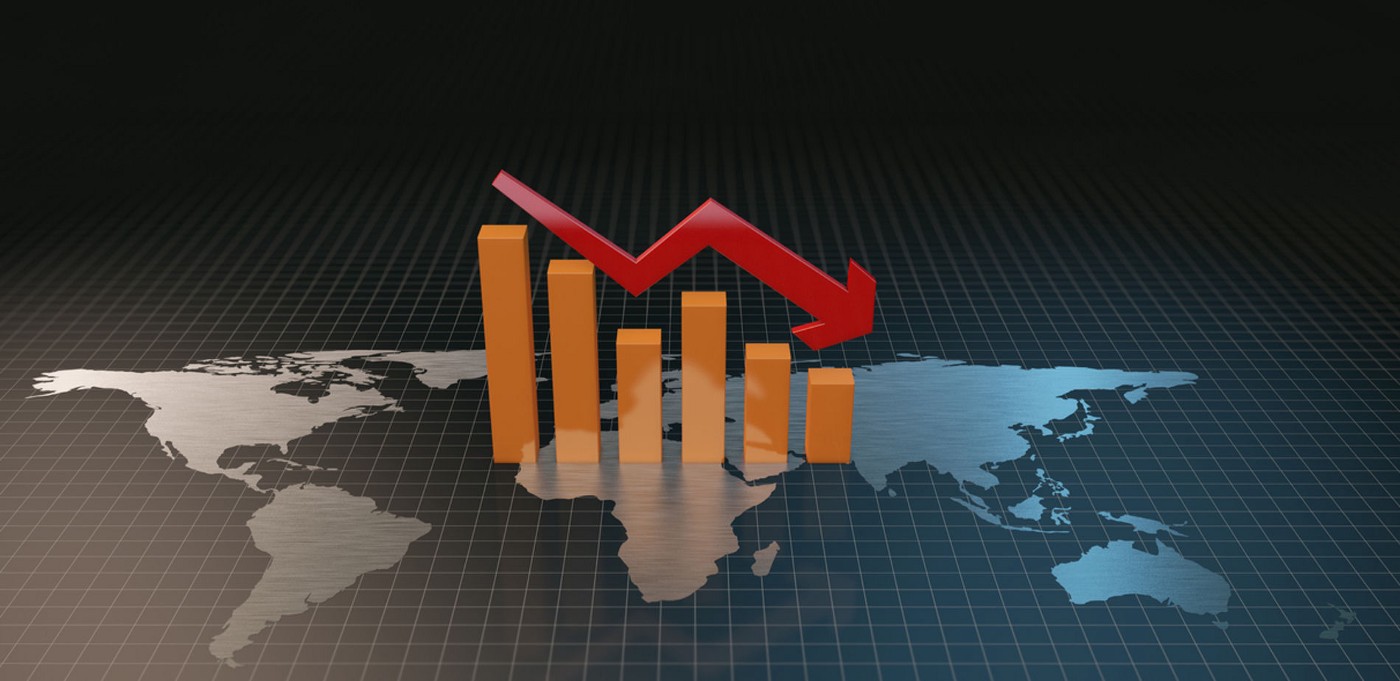Is the global economy facing a recession?

Global Economy: Is it facing a recession? How is India affected by the same?
In 2022, a significant economic slowdown will be brought on by the COVID-19 pandemic’s aftereffects as well as the ongoing conflict in Ukraine. The cost of basic goods is rising to record levels, the economy is expanding more slowly, and inflation is rising.
The world’s financial conditions are becoming more rigid due to higher-than-expected inflation, particularly in the United States and major European nations. With COVID-19 outbreaks and shutdowns, China’s recession has been greater than expected, and the conflict in Ukraine has had further detrimental effects. As a result, the second quarter of this year saw a decline in global output.
Before we talk about whether the global economy is facing a recession or not, let us understand what a recession is.
What is a recession? How do we know when a recession has begun?
A recession, in simple terms, is when the economy’s performance and functioning decline over a protracted period of many months and is characterised by a contraction of GDP, an increase in the unemployment rate, and a fall in consumer expenditure. People may see considerable effects on their daily life during a recession.
Many nations still use the term “two consecutive quarters of falling growth”, coined by US economist Julius Shiskin in 1974 to characterise a recession.
According to analysts, a sustained increase in job losses and a spike in unemployment would be the most obvious signs of a recession. In the past, a recession was predicted to start within three months of the unemployment rate rising by three-tenths of a percentage point on average over the previous three months.
What is India’s economy as the West moves towards recession?
It seems like it is competition in the West regarding who goes into recession the earliest. Currently, the United States is sprinting ahead, but Europe is not far behind. Even if Joe Biden and his government are hesitant to acknowledge it, the largest economy in the world is currently ‘technically’ in a recession. The American economy has already seen two-quarters of a recession in 2022 alone. The GDP of the United States shrank by 1.6% in the first quarter. According to data released, the US economy shrank by 0.9% between April and June.
However, when it comes to India’s economic state, the truth is that India has successfully defended itself during this time of notable economic turmoil. India’s continuous excellent performance on economic metrics has baffled many experts.
India has recognized the necessity of adopting supply-side changes early on and maximising the taxpayer’s return on investment (ROI) on the demand side.
India has managed to keep its inflation in check and in the single digits, while other developed and growing nations are battling to keep rates under control, even at 14 to 15%. As a result of its early recognition of the necessity of implementing supply-side reforms and maximising the return on taxpayer funds on the demand side, India has been able to retain relative stability and defend itself through this period of high economic volatility globally.
Will the recession in the USA impact India?
Experts in India feel that the impact of recession in India would be minimal and short-term, despite analysts’ concerns that the US will enter a recession within the next year and that this will have a cascade effect on the rest of the world.
India is not immune to a US recession, and even in typical Fed-led recessions, domestic GDP has slowed by 1.5% to 2.5%. It is predicted that GDP growth could decelerate to 6% in FY24, assuming a minor US recession and 7.5% GDP growth in FY23.
The domestic rate cycle has never moved in opposition to US Fed rate moves, but long pauses are frequent. Crude oil prices have eventually levelled down, and the value of US currency has decreased. Hence, what followed is the US recession, promoting domestic economic stability and a resumption of capital flows into EMs, including India. In the eventuality of a US recession, it is anticipated that rates will decrease, the rupee will trade with a slight depreciation bias versus the dollar, and equities market returns will be subdued but positive in the base case.
Ending Note
Nomura Holdings, a Japanese brokerage firm, has stated that there are growing indications that the global economy is entering a “synchronized growth slowdown,” which has “prompted us to forecast multiple recessions” and this basically means that countries can no longer rely on a recovery in exports for growth.
